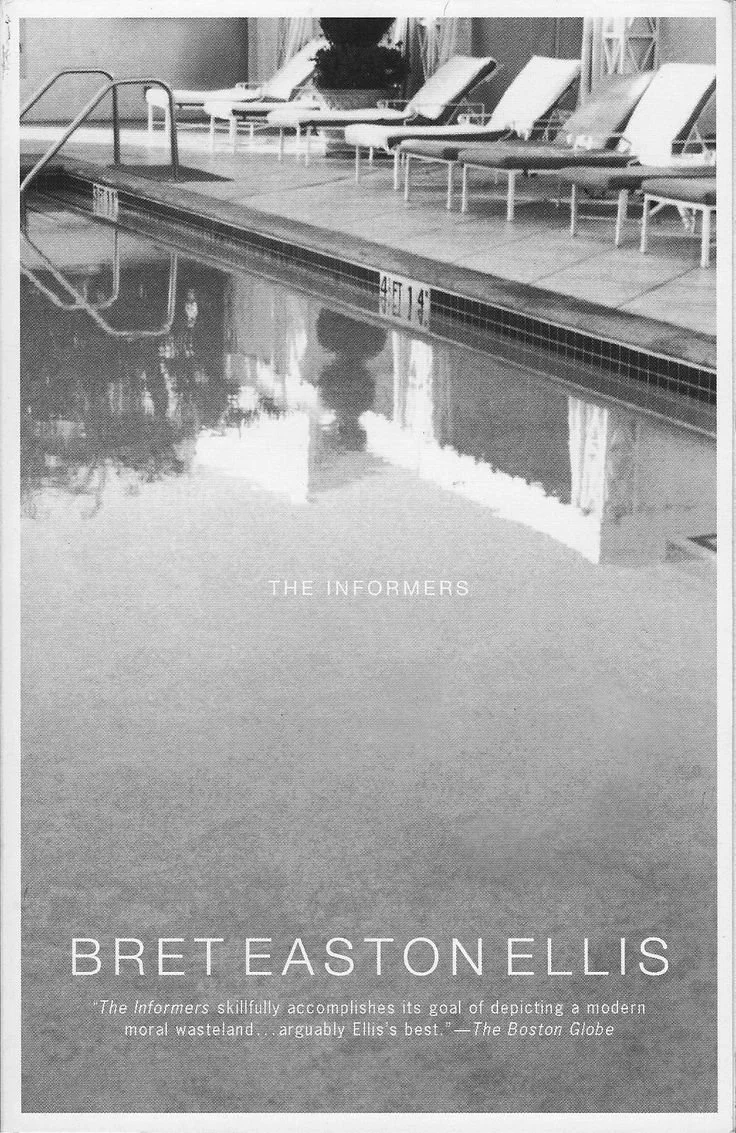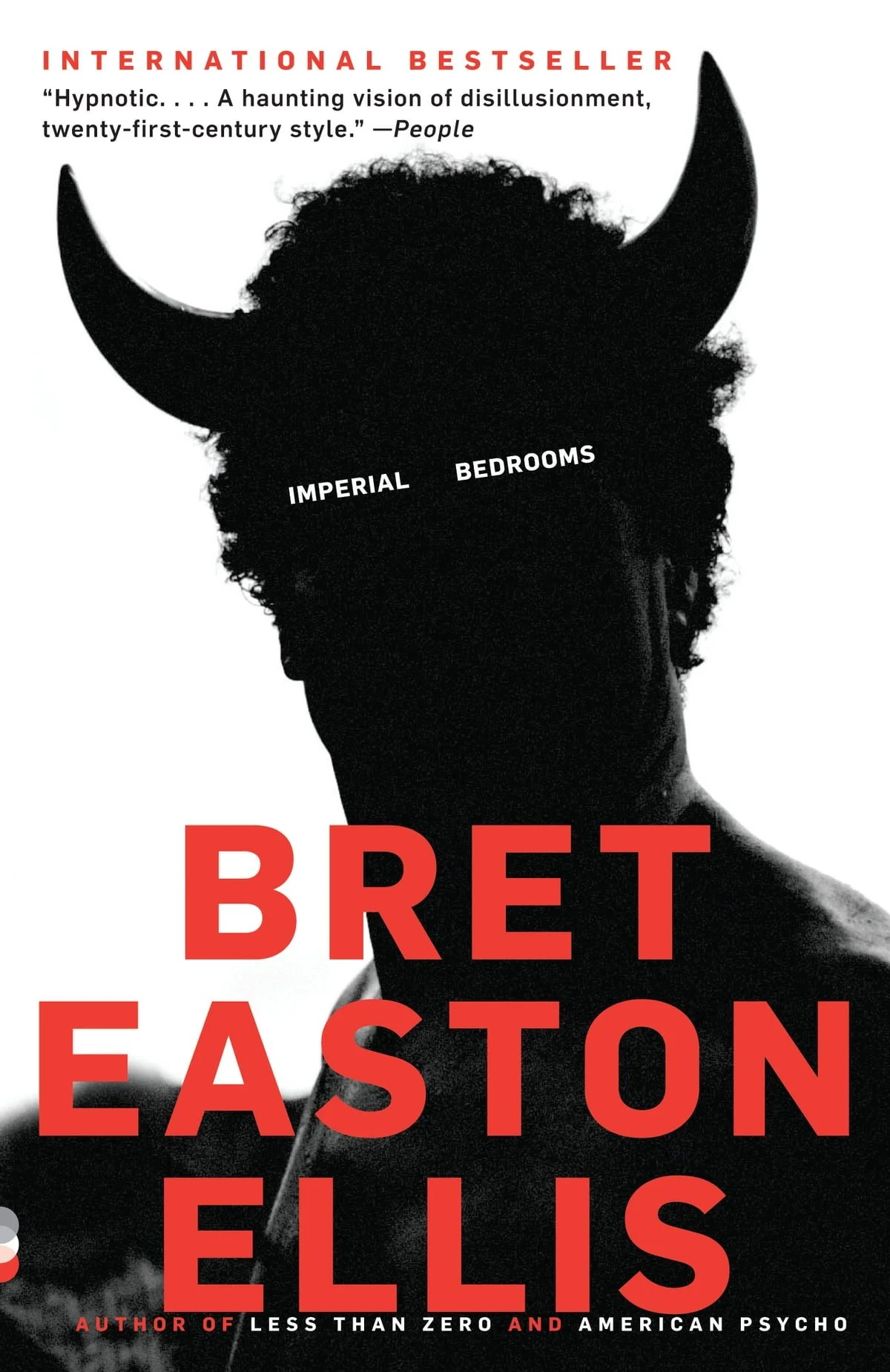Book Review : Bret Easton Ellis - Glamorama (1998)
* this review contains spoilers for a twenty-five years old novel. Be warned. *
It's interesting to me that Bret Easton Ellis is almost considered a one hit wonder in contemporary literature. Primarily known for the adaptation of his novel American Psycho, history would be harsher on him if it wasn't for his less violent, but equally disturbing debut novel Less Than Zero. When you're an artist, you're remembered for what people choose to remember you for, which must be insanely frustrating. With twenty-five years of hindsight, there's no reason why we chose to remember American Psycho over Glamorama.
But here we are.
Glamorama is thematically similar to American Psycho, except it's a better novel in every possible way. It tells the story of a model named Victor Ward (named Victor Johnson in The Rules of Attraction), who is planning to open a super exclusive night club with house money. He navigates a world of pointless engagements and disposable celebrities until he is contacted by a man named F. Fred Palakon who offers his broke ass 300 000$ to find his college sweetheart Jamie, who's supposedly alive somewhere in London.
The Hollow and Circular Dream of Bret Easton Ellis
This novel has officially six parts, but it technically has two: Victor's life before meeting Palakon and Victor's life after accepting Palakon's mission. Also, Glamorama is not a book you can conventionally like. It doesn't have a relatable protagonist and he doesn't cougareously face aversity in a riveting storyline in order to become a better version of himself. It’s what you're supposed to get from a novel. It's what the unwritten contract, but it's not what you're getting here. Glamorama's charm is that it denies you all that.
Victor Ward doesn't have any interiority. He bounces off the questions and concerns from a rotating cast of support characters. He name drops so many celebrities, you stop thinking it's cool that celebrity X is mentioned in a Bret Easton Ellis novel because they all are and it gets old quick. After a hundred pages or so, a dreadful sense of disposability starts emerging. Everyone gets their fifteen minutes of fame and everyone is forgotten even quicker. The celebrity presented in Glamorama fucking sucks.
It's even worse if you consider that Bret Easton Ellis often deconstructs in his novel stuff that he's lived firsthand. He's basically calling out what is very much still the American dream in 2023 for what it is, a machine that uses and crushes people in order to entertain nameless masses. It's a very uncomfortable and somewhat revolting idea to sit with, but Ellis claims it loud and proud: you've been lied to. What’s on the other side of everything you ever wished for is full of vapidity and substance abuse.
He was never going to make such a powerful statement with a straightforward novel, but he pulled it off with Glamorama.
The Part About Terrorist Models
Glamorama is also the first Bret Easton Ellis novel to feature a plot, although it doesn't show itself until nearly the halfway point. When going to London searching for Jamie, Victor encounters a party of models lead by a man named Bobby Hughes who revel in death and destruction. They are apolitical terrorists operating out of Paris who got so bored of getting everything out of life that they decided to start taking away from others. That type of behavior from the ultra privileged is quite common in Bret Easton Ellis' novels.
If you have already everything, the only thing left for you to do is to lose it all. It was a the heart of The Informers.
What interested me more in this second part is Victor's clone who's been appearing wherever he shouldn't have been and ruining his chances at scamming his way out of the rut he was in. I loved it, because I thought it was a split personality thing all along and it wasn’t. The image Victor projected professionally kind of separated from the person he truly was and went on to live his best life. It's not a phenomenon that is outwardly explained and it didn't need to be. It was weird and outlandish enough to fit in.
*
I’m a little more than halfway into this Bret Easton Ellis' retrospective, but I would say Glamorama is better than everything else I've read from him so far. It's not a perfect novel by any means. It's jagged and antagonistic and extremely ugly in parts, but it all adds to more than the sum of its parts. Glamorama is a toxic fever dream that threatens your sanity and sense of security. It's lengthy and infuriating at times, but well worth powering through its existential gridlock. I had a lot of fun with it.






